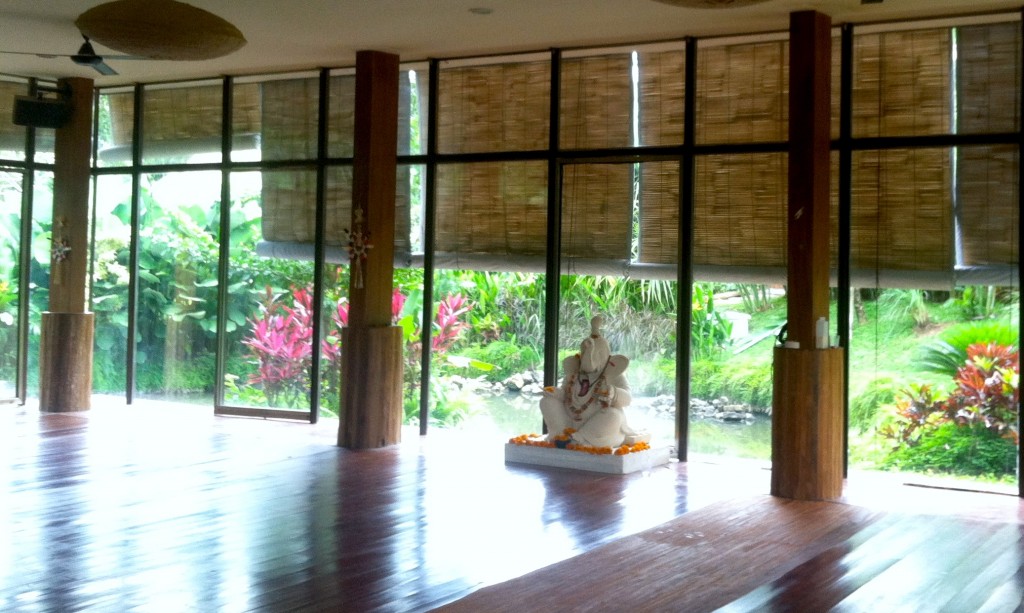 Today is an exciting day -- I am thrilled to introduce you to a fabulous woman, Dr. Sara Gottfried, who I have had the honor of working closely with these last few months on the launch of her sure-to-be-bestselling book, The Hormone Cure.
I have had the privilege of working with Sara as part of her all-star book launch team, and have been blown away and inspired by her drive, her message, her innovative ideas, and her incredible wealth of medical experience.
Today is an exciting day -- I am thrilled to introduce you to a fabulous woman, Dr. Sara Gottfried, who I have had the honor of working closely with these last few months on the launch of her sure-to-be-bestselling book, The Hormone Cure.
I have had the privilege of working with Sara as part of her all-star book launch team, and have been blown away and inspired by her drive, her message, her innovative ideas, and her incredible wealth of medical experience.
What I love most about Sara is her non-traditional approach to modern medicine. She advocates for tuning in to our bodies' own natural intelligence to solve the root of our health problems (including lack of energy, stress, low sex drive) -- rather than running straight to pills and prescriptions to address the surface-level symptoms.
Given my focus this year on alignment between body, mind and thought, I asked Sara if she would be willing to share her expertise with us in a "body intelligence 101" primer. These tips will help you naturally heal yourself, and learn to listen to your own body's own directives on how to fix itself when off-balance. As Sara shares later in the post:
"These techniques will help you navigate the brave new world of 'personalized medicine" -- where you know your DNA, and you apply the promise of epigenetics (managing your genes on a personal level) to improve 50-80% of gene expression with how you eat, move, think and supplement."
—Dr. Sara Gottfried
Enter Dr. Sara
When I was little, my great-grandmother Mud came to visit our family. My sister and I were hoping she would bring presents, cookies, maybe a Barbie or two. Like our friends’ grandparents.
But our great-grandmother, when she stepped off the plane from California, was pulling a suitcase full of kale, fish oil, wheat berries and Meyer lemons.
“Confused” would be a nice way to describe our reaction.
Mud the Miracle-Grandma
Mud was an anomaly. She was rarely without a glass of warm water and lemon in her hand. She cheated at cards and was smart as a whip. She slept on a board and practiced yoga, decades before it was popular. Mud had perfect teeth. Her posture would blow your mind. She looked 25 years younger than her peers and could lift her foot behind her head, as a great-grandmother.
Ancient Practice, Modern Application
Spending time with Mud (often in a mixture of awe and bewilderment), I started to understand that an entire world of prevention, healing, and repair exists through nutrition and lifestyle. Chinese and Ayurvedic medicine prove that health can be managed through daily habits and natural remedies, from what we put in our mouths to when we close our eyes at night. I learned that a bottle of pills isn’t always the answer. That diet is the foundation of health. That regular exercise and contemplative practice can keep your body humming right up to (and beyond!) 100.
Amplify the Positive: Body, Heal Thyself
As a practicing physician who’s worked with over 20,000 patients, I know our bodies come with built-in systems designed to help us heal, manage, and basically enjoy the heck out of every day we get on this earth. Ancient traditions illustrate it and modern science is starting to prove it: The better we treat our bodies, the more we’ll get out of them. I say we adopt some of those kale-eating, board-sleeping habits that Mud taught me, so that we too can put our feet behind our heads and freak out our great-grandchildren.
9 Ways to Attune to Your Body's Own Intelligence
1. Attend to Your Gut
Health, like beauty, truly is on the inside: the millions of bacteria that make up the microbial garden of your gut are your body’s first line of defense against infections and illness. Known as the microbiome of the gut, science is exploding with studies proving our bodies are designed – like some crazy robot of the future – to heal themselves. When they’re out of balance, bad bacteria start to cause problems, whether that means illness or hormonal imbalance.
Most 20-somethings I know have a frat party in their gut from too much sugar, alcohol, late nights, and unmanaged stress. Guess what? That’s where most of your most important happy brain chemicals are made, such as serotonin (Dr. Sara-tonin?), which is the boss of your mood, sleep, and appetite.
The answer: A healthy diet creates healthy bacteria, which turns you into an infection-fighting, cold-thwarting machine.
2. You Snooze, You Win... Create Circadian Congruence
Humans are designed to rise with the sun and to sleep when it’s dark out. This is a “duh” statement, but lots of us are guilty of too-late nights and whole days spent inside. Sure, there are morning people and night owls, but your hormones are released according to your sleep/wake cycle.
The answer: Get your Circadian rhythm in order, and your body will produce the hormones you need when you need them.Try to wake up and go to sleep at the same time every day, and to expose yourself to sunlight. There’s no better way to tell your body it’s time to wake up. And to get a tan.
3. My Fork, My Self
If you need a hunk of chocolate cake and fried chicken to get through your day, that's a sign your hormones are off - and this is not good for your DNA. Cravings for salt and sugar can be cries for help from your thyroid, your cortisol levels, or your even sleep cycle.
The answer: Stick to whole foods, high fiber, and lots of water. Take a hormone quiz (you’ll see how at the end of this post) to see which aspects of your diet might be lacking.
4. Restore, Rejuvenate, Refresh
Accelerated aging, wrinkles, moodiness, low energy...these are all signs that your body hasn’t had a chance to repair itself. Cell repair is an important process that happens every night, but late bedtimes and not enough sleep can curtail its effectiveness.
The answer: 10pm? Lights out. I don’t want to sound like your mother but...go to sleep by 10pm as many nights as possible (ideally 5 of 7 each week). Getting in bed by this time is the magic hour to facilitate repair benefit to your body, cells, and muscles. The ratio of catabolism (wear and tear) to anabolism (growth and repair) shifts while you sleep, and the hours before midnight are especially auspicious. In other words, this is how you can avoid Botox. Do it.
5. Symptoms = Message from Your Body (Not a Cry for Pills)
Think about a health problem as a message from your body. Hard-to-lose belly fat? Your cortisol could be high. Low sex drive? Testosterone and estrogen levels may be off. Memory loss? Estrogen and cortisol could be factors in this equation. Moodiness is not a Lexapro deficiency - it's a sign that your sky-high and unmanaged stress might have hijacked your neurohormonal dashboard and burned through your happy brain chemicals.
The answer: Decode your body’s messages! Get to the root cause. Up the Omega 3s in your diet, try GPS for the Soul (https://itunes.apple.com/us/app/gps-for-the-soul/id586099254?mt=8) and take some B6. These are just a few of the gentle, prescription-free ways you can care for you body, and pretty much everyone will benefit from them. Always try lifestyle tweaks such as diet or exercise solutions before you reach for the pill bottle.
6. I Stress, Eustress...
Don't confuse hyperdrive, late-night bursts of energy and other stress-junkie symptoms for productivity. Yes, elevated cortisol is bad for you, but so is low cortisol. Ideally, you get a burst of cortisol in the morning that wakes you up and gets you going. Over the course of the day, your cortisol levels should slowly decline so that when bedtime rolls around (10pm, right?), it’s easy to relax and fall asleep. Cortisol needs to be in the “Goldilocks” position: not too high, and not too low. Modern life has convinced many of our brains that everything is a stressful situation, from a presentation at work to making a sandwich when you just can’t find the mustard.
The answer: “Eustress” means good stress, because we all need some cortisol in our lives. It’s what gets us going! The healthy solution is to change your reaction to stressful situations; approach them as a challenge, or try some deep breathing, yoga, or meditation.
7. Be a Good Neighbor
Think of your body as a neighborhood: a busy community of hormones, bacteria, and hard-working organs. Many of these work together – known as “cross talk” – which means that if one aspect of your health is off, chances are it’s affecting something else. HIgh cortisol often results in low thyroid, which means a stressed-out mind and a slowing metabolism. No, thank you.
The answer: Figure out what your body needs, and do it! Returning this interconnected system to balance may have positive effects you didn’t even think of! Healthier skin! More flexible joints! The ability to cope with stressful situations without a glass of wine or three!
8. Nerd Out with Biohacking
Biohacking (made famous by Tim Ferris) is the act taking personal control over your own health – “hacking” your own system. It involves measuring and tracking, with intense focus, different aspects of your life to gain insight...then making small tweaks, and obsessively tracking them again. Everything from the calories you consume, to the amount you sleep, to the exercise you do each week falls under this umbrella.
This is also known as do-it-yourself biology, outside the confines of traditional environments like universities and industry. It's incredibly empowering, and along the way, you'll hopefully discover what an amazing machine the human body is. I believe that this, combined with our knowledge of ancient practices and modern science, is the future of health.
The answer: experiment with tracking key metrics of your health over the next 5, 10 or 30 days. Start with something you'd like to change -- like your mood -- and start keeping detailed records of anything related to it. Sleep, diet, exercise, relationship, medication... You get the picture. Once you've got a handle on that, start making small tweaks that you think will correct the problem. Record your progress, your successes and your failures. Do research. Make charts.
9. Bonus: make sure you are speaking the language of your body
For instance, your adrenals -- those cute little glands in your mid-back that are in charge of cortisol and stress -- respond to what our heart tells our brain. Seriously. If you’re trying to find the eye of the storm, amplify the positive in terms of your emotions: more love, gratitude, forgiveness. This isn’t just some woo woo idea, there’s hard data to support it.
The answer: Simply hitting the “pause” button by closing your eyes, and imagining breathing in and out through your heart with abdominal breathing can reduce that bad-boy hormone, cortisol, by 23%.
Concluding Thoughts: Love Up Your DNA
Science is at a point where the cost of sequencing your DNA currently costs $10K, but is expected to be just $100 by 2015.
There's a revolution coming, and these techniques will help you navigate the brave new world of "personalized medicine" -- where you know your DNA, and you apply the promise of epigenetics (managing your genes on a personal level) to improve 50-80% of gene expression with how you eat, move, think and supplement.
By making lifestyle changes, such as reducing your alcohol consumption, exercising more, and losing weight, you can potentially encourage a gene that tells your body to make more of the “good” hormones instead of the “less good” hormones. Overall, there’s no change in your DNA sequence, but non-genetic triggers can cause your genes to behave, or express themselves, differently. This is where being proactive establishes your hormone cure.
Ready for Your Hormone Cure?
You can start the path to your own hormone cure by purchasing my book, The Hormone Cure: Reclaim Balance, Sleep, Sex Drive, and Vitality Naturally with The Gottfried Protocol. There you’ll find quizzes, case studies, and advice on a personalized strategy to manage your hormones. As a thank-you for reading, there are some bonus goodies available to you as well! Just check out The Hormone Cure website to see what’s in store for you.
More about Dr. Sara Gottfried
 For the last twenty years, Harvard and MIT-educated physician, speaker and author of The Hormone Cure, Dr. Sara Gottfried is a firm believer in treating the root cause of problems, not just the symptoms. She believes in leafy greens and nutrient-dense foods, together with evidence-based integration of botanicals and bioidentical hormones, rather than just prescribing medication.
For the last twenty years, Harvard and MIT-educated physician, speaker and author of The Hormone Cure, Dr. Sara Gottfried is a firm believer in treating the root cause of problems, not just the symptoms. She believes in leafy greens and nutrient-dense foods, together with evidence-based integration of botanicals and bioidentical hormones, rather than just prescribing medication.
"My method is not one-size-fits-all. My mission is to help women feel sexy, vital and balanced from their cells to their soul," claims Dr. Gottfried adding, "I believe that managing and optimizing your health is your divine responsibility and path to personal power." Learn more about Sara here.

 I'm excited to be one of the featured guests for the upcoming En*theos WTF Should I Do w/ My Life?! virtual conference, hosted by Jacob Sokol. Jacob is a long-time friend from the blogosphere, and it's an honor to be among the list of inspiring guest interviewees. Here's more information for those of you who are interested!
I'm excited to be one of the featured guests for the upcoming En*theos WTF Should I Do w/ My Life?! virtual conference, hosted by Jacob Sokol. Jacob is a long-time friend from the blogosphere, and it's an honor to be among the list of inspiring guest interviewees. Here's more information for those of you who are interested!


 Can I start my own company one day? How do I get promoted at work? How do I find a job in this competitive market? Was quitting your job worth it? How can I earn money doing something I love?
Can I start my own company one day? How do I get promoted at work? How do I find a job in this competitive market? Was quitting your job worth it? How can I earn money doing something I love?




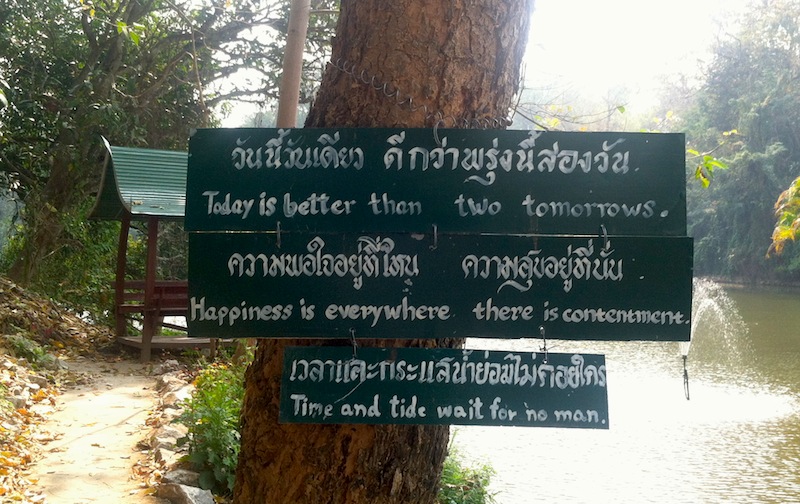
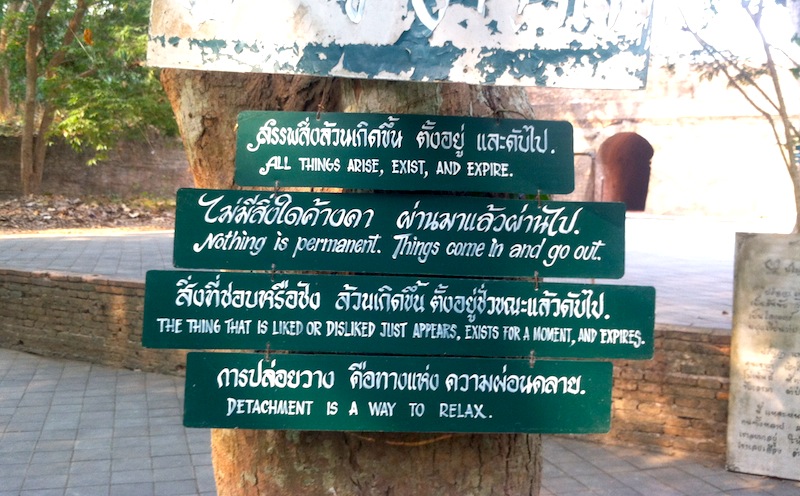
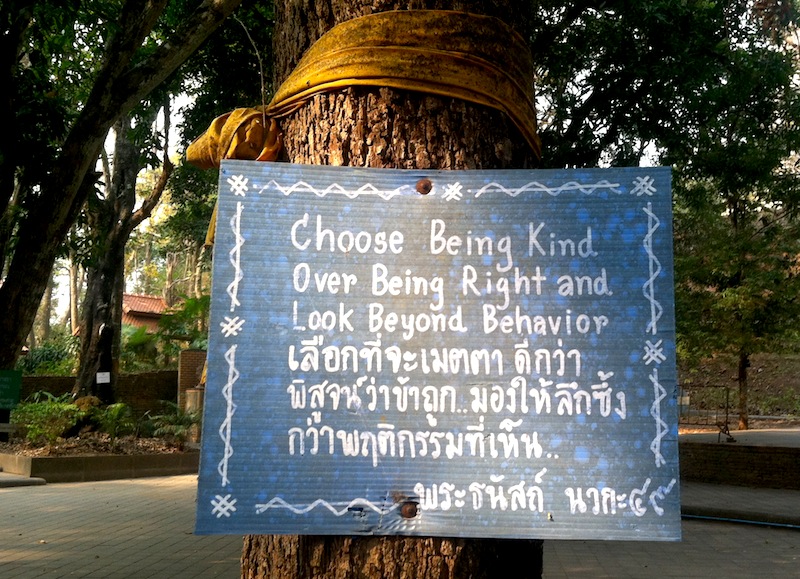


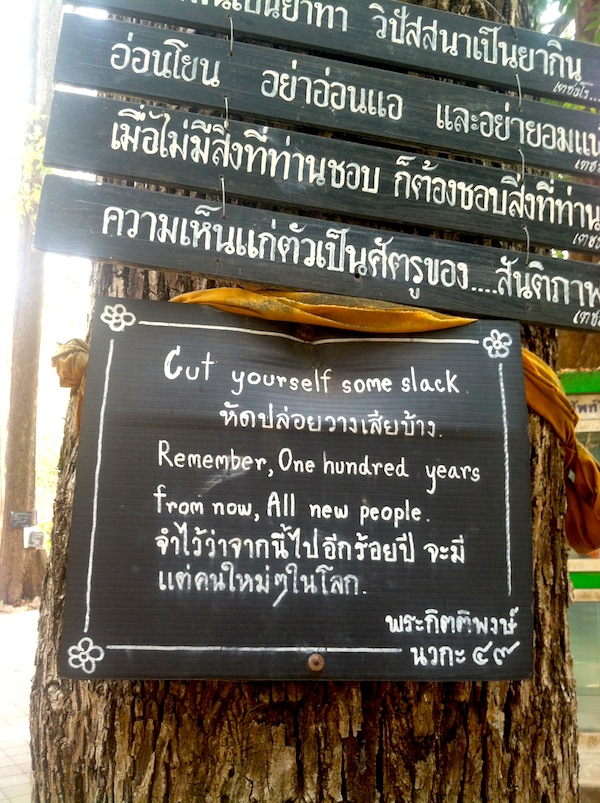
 Cliché as it may be, every January I choose a word to represent my intention for that year. More important even than specific goals, the words helps me check-in and see if I am acting in line with what is most important to me on a regular basis, not just "one and done" the way goals can be sometimes.
Cliché as it may be, every January I choose a word to represent my intention for that year. More important even than specific goals, the words helps me check-in and see if I am acting in line with what is most important to me on a regular basis, not just "one and done" the way goals can be sometimes.




 Greetings from Bali! I have officially settled in on the other side of the world and have written and re-written this post in my head for the last few days—there is so much to share, but still so much that I don't yet have the words for. Consider this a scratch-the-surface start :)
Greetings from Bali! I have officially settled in on the other side of the world and have written and re-written this post in my head for the last few days—there is so much to share, but still so much that I don't yet have the words for. Consider this a scratch-the-surface start :)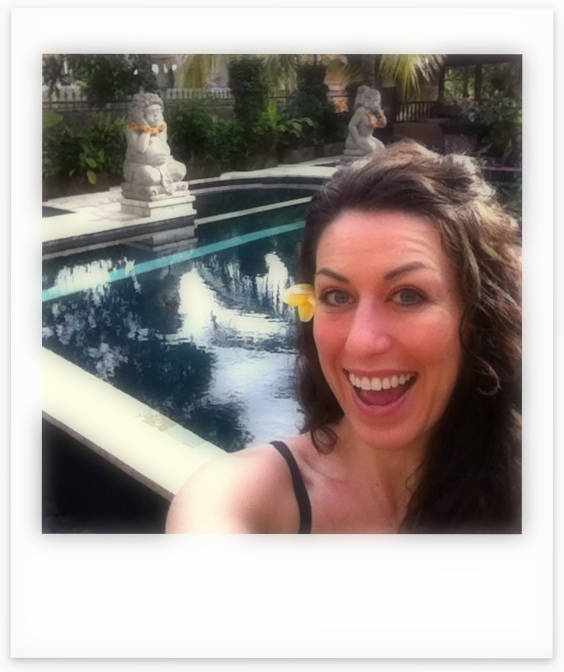 $30 a night gets you a very nice room with free WiFi, a double bed, a private bathroom, breakfast and air conditioning. The views from most places are beautiful. $50 a night and you start getting into resort territory! Of course you can pay big bucks ($300+) but you certainly don't have to in order to be more than comfortable.
$30 a night gets you a very nice room with free WiFi, a double bed, a private bathroom, breakfast and air conditioning. The views from most places are beautiful. $50 a night and you start getting into resort territory! Of course you can pay big bucks ($300+) but you certainly don't have to in order to be more than comfortable.